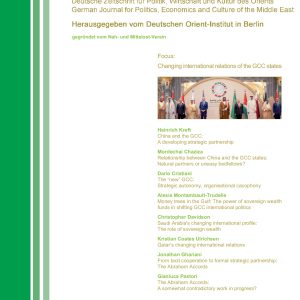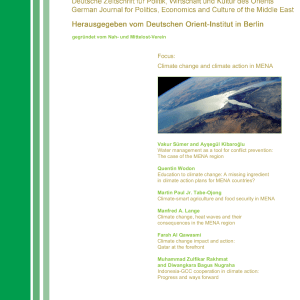Shop
Showing 129–144 of 350 resultsSorted by latest
-

The Abraham Accords: A somewhat contradictory work in progress?
7,90 €incl. VAT
Add to basket -

From tacit cooperation to formal strategic partnership: The Abraham Accords
7,90 €incl. VAT
Add to basket -

Qatar’s changing international relations
7,90 €incl. VAT
Add to basket -

Saudi Arabia’s changing international profile: The role of sovereign wealth
7,90 €incl. VAT
Add to basket -

Money trees in the Gulf: The power of sovereign wealth funds in shifting GCC international politics
7,90 €incl. VAT
Add to basket -

The “new” GCC: Strategic autonomy, organisational cacophony
7,90 €incl. VAT
Add to basket -

Relationship between China and the GCC states: Natural partners or uneasy bedfellows?
7,90 €incl. VAT
Add to basket -

China and the GCC: A developing strategic partnership
7,90 €incl. VAT
Add to basket -

Orient II 2023: Changing international relations of the GCC states
26,00 €incl. VAT
plus Shipping Costs
Select options This product has multiple variants. The options may be chosen on the product page -

Indonesia-GCC cooperation in climate action: Progress and ways forward
7,90 €incl. VAT
Add to basket -

Climate change impact and action: Qatar at the forefront
7,90 €incl. VAT
Add to basket -

Climate change, heat waves and their consequences in the MENA region
7,90 €incl. VAT
Add to basket -

Climate-smart agriculture and food security in MENA
7,90 €incl. VAT
Add to basket -

Education to climate change: A missing ingredient in climate action plans for MENA countries?
7,90 €incl. VAT
Add to basket -

Water management as a tool for conflict prevention: The case of the MENA region
7,90 €incl. VAT
Add to basket -

Orient I 2023: Climate change and climate action in MENA
26,00 €incl. VAT
plus Shipping Costs
Select options This product has multiple variants. The options may be chosen on the product page



